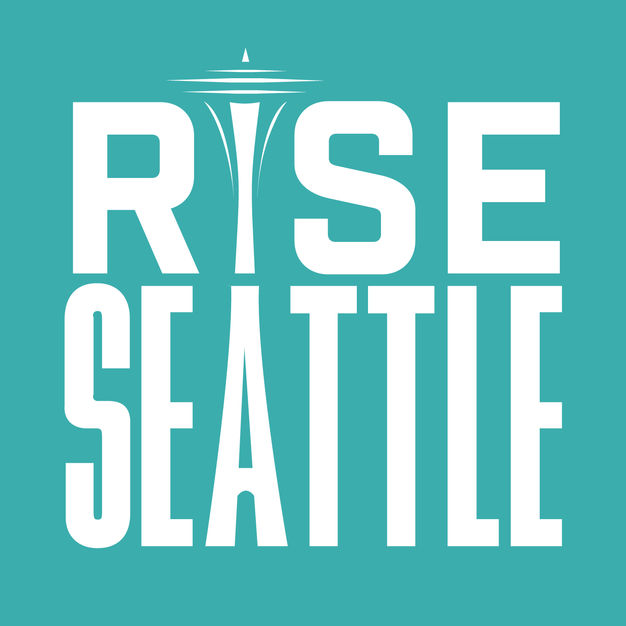
Rise Seattle
Tyler Davis Jones
Where's the best place to get a beer in North Seattle? How is our City Council planning to address the growing need for housing affordability? What does it take be a "local" in Seattle today? On the Rise Seattle Podcast you'll hear all this and more. Sit down for intimate discussions with Seattle leaders about the pros and cons of the city's growth and what they are doing amidst the rise.
- 26 minutes 23 secondsThe Impact of Interest Rate Hikes on Real EstateEveryone wants to know, “How’s the real estate market?”. But getting a straight answer to that question is tough and often confusing. We’re diving deeper into the numbers to explore the market and help create clarity. When you understand what’s going on, you feel more confident in making decisions to buy and sell. Interest rates continue to dominate the headlines as they have been on a steady rise since February of this year. And they deserve our attention because they have a big impact on affordability. If interest rates go up 1% a buyer can afford approximately 10% less in purchase price. And we’ve said this many times before: people live in the payment, not the purchase price. Rates have risen by over 1% these past few months and we are seeing buyers adjust their expectations by lowering their search prices. But please note, they are still looking to buy!
And while interest rates are important and the rate hikes are affecting the market, inventory remains the star of the show in our opinion. Listen to Tyler and Adam dive into the data to ensure you're the most informed real estate investor out there in a shifting market!
15 May 2022, 5:24 pm - 27 minutes 51 secondsIs There a Housing Bubble Ahead?
WE ARE BACK! We often get asked, "Is there a housing bubble coming?" While we can't predict the future, on this episode of the Rise Seattle Podcast, Tyler Davis Jones and Adam Hestad discuss the current market temperature and how "time in the market" is far superior to "timing of the market".
17 March 2022, 9:05 pm - 33 minutes 51 secondsCOVID-19 Seattle Real Estate Market Update
We all need a secure and a safe place to live. Water, food and shelter are the baselines of Maslow's hierarchy of needs. One fundamental realization I’ve learned during our social distancing experience has been how important the home is. Your environment is paramount to your emotional, psychological, mental and even spiritual health. So how has COVID-19 impacted real estate? Where were we at a month ago? Where are we now? Where will we go?
20 April 2020, 10:41 pm - 49 minutes 21 secondsDr. Dan Hartman: COVID-19: What Does the Future Look Like?
Dr. Dan Hartman is the director of Integrated Development for Global Health at the Bill & Melinda Gates Foundation here in Seattle, and in this episode of the Rise Seattle podcast, Dan helps us to better understand the ever-evolving situation surrounding COVID-19.
Dan and podcast host Tyler Davis Jones chat via Zoom, and Dan answers questions like:
- What is the U.S. healthcare system experiencing now?
- Is Washington State on the tail end of this?
- When and how do you think we'll get back to normal?
- What is the Gates Foundation doing in response to coronavirus?
- Where did we go wrong in our response to this?
- If you could wave a magic wand and make everyone know and understand one thing, what would it be?
As a physician trained in internal medicine and pulmonary critical care, Dan now works with a highly talented team in product development assisting the different disease area teams at the foundation.
Dan starts off the episode explaining some of the science behind SARS-CoV-2, the virus that causes coronavirus disease 2019 (aka COVID-19):
“It’s very different than the flu… the way it's transmitted is about 2 - 3 times easier than the flu, AND it’s about 10 - 20 times more deadly,” he shares. “When you combine those 2 things together, that’s when you start seeing healthcare systems start to be crushed under the weight of this particular disease.”
As far as what the U.S. healthcare system is experiencing right now, Dan has heard from friends who still work in hospitals who are experiencing firsthand everything that’s been happening. In the past couple of weeks, COVID-19 has been hitting different parts of the country in waves, and in some places, the majority of patients that are coming into a hospital have COVID-19. Some first responders are also reporting that 90 - 100% of people they’re helping are all dealing with COVID-19.
While those who need intervention from the healthcare system are in the minority of cases, it’s still enough that in many places, it’s completely overwhelming the healthcare system. Many people can stay at home and get better, but the people who are seeking healthcare are the ones who are experiencing serious respiratory symptoms such as shortness of breath.
And of course, there are many people who are pre-symptomatic and asymptomatic but aren’t aware of it.
“What we’re learning is there are a significant number of people who are walking around without symptoms, and that’s both good and bad,” shares Dan. “It’s good that they're not having symptoms, it’s bad that they’re walking around spreading it.”
COVID-19 has a much longer incubation time than the flu, making the spread even more likely.
“I think it was a really good idea to start to request that people would wear masks if they’re going outside and are going to be close to people,” Dan says.
TREATMENT FOR COVID-19
“It’s important for people to understand that there’s no specific therapy to treat SARS-CoV-2 and it’s really just supportive care,” Dan says. There's a lot of misinformation out there right now, and there have been many reports that specific treatments are helping people get better. But anecdotal success stories are much different than actual studies.
“If you’re on a ventilator in an ICU your probability of getting off is only around 20%. And almost all of those people are getting these drugs,” Dan shares. The drugs that Dan is referring to cover a wide range of potential treatments; if a patient is in serious decline, doctors are using all of the knowledge and tools that they currently have to try their best to treat their patients. Sometimes their methods work, and sometimes they don’t.
Of course, this is not a long-term strategy, and the Gates Foundation is actively working on treatment options.
“We’re working on 10 to 15 different products that could work in this area,” shares Dan.
“It’s great working with two humanitarians like Bill and Melinda, and they jumped into this just like we jumped into Ebola,” says Dan. “For the pandemic we’re currently in the middle of—or even at the beginning of—the response was quick, and we’ve set up all kinds of different things. We have like 20 different workstreams going on looking at a whole host of different signs whether it's therapeutics, diagnostic, vaccines, the [treatments] you’ve mentioned.”
The Gates Foundation is especially focused on how they can help low-income countries deal with this in the near future. Dan paints a picture of what COVID-19 will look like in different low-income countries with fewer resources, and for many, the situation will be much more dire.
WHAT HAPPENS NEXT?
“I think Seattle has done a really good job in terms of trying to control this. We were the first city to really have to deal with this,” shares Dan.
But while Washington State may be “flattening the curve,” Dan adds that “the delta between where we’re at today and where we need to be is still far.”
Tyler asks what our new norm is. How do we come out of this, and what’s the trajectory? Tyler also wonders if wearing a mask to the grocery store for the rest of our lives is the new normal, or if we just need to do this for the next few months.
Dan thinks the answer is somewhere in the middle. “This does not have an off switch,” he says. “There’s a whole bunch of different things that need to happen before we come out of what I might call Phase 1 and into Phase 2. So we’re going to have to see the number of cases continue to drop dramatically so we know that there’s not ongoing transmission. We’re going to have to have testing widely available.”
That brings up a few big questions: When will we have enough tests? And where did we fail in this situation when it comes to testing?
“I think we failed in just about every way imaginable,” Dan says.
Not only did we not have a great test, but the test we did have wasn’t widely available. Even when a test was available, it became about whether or not you could get the results back in a timely way so you could actually act on the results. Then, even if there are enough tests, they might run out of nasal swabs, for example.
“I think with the information that I have today, life will be different until we get a vaccine, and that’s 12 to 24 months away. How different it will be I think remains to be seen… It will be different, I’m predicting for months, if not years, and restrictions that we’re going to have could change over that time period too.”
“There really isn’t going to be an off switch to this,” Dan adds. “There’s going to be an off ramp. So what we can all do is pay attention to good information and try to adhere to the guidelines. Where am I hearing the best information? Probably people like Dr. Fauci from the NIH… he’s really been spot on with all of his advice.”
At this point, Dan says that experts aren’t positive yet as to whether or not those who have had COVID-19 are immune to getting the virus again. There are some reports that people have had it twice already, but the evidence is not concrete enough to know for sure. Either way, “Everybody should have some type of test of immunity at some point,” he says.
Once many people can return to their normal everyday lives, there are healthcare experts who are saying that people over 60 should probably continue to shelter in place as best they can. “I joke with my parents who are 84, the next time I see you, I’ll be bringing a vaccine,” adds Dan.
With the economy taking the hit that it has, it also has people wondering if the cure is worse than the disease. “I think the disease is probably worse than the cure, but at a certain point, that will flip, and people just have to get out and the economy has to get going again,” Dan shares. “But we have to do it in a smart way and this is where we use the best science that we have today to make those decisions.”
“I’m quite hopeful that we’ll get out of it, I just don’t know what that will look like. And I'm energized to try to be part of a group that’s working on ways to get us out of it. This is something like none of us has ever seen in our lives.”
Dan leaves us with some other great advice that we can all use as we take on the challenging days ahead:
“Be smart, be kind, and be safe.”
Here are a few links that you may find useful:
Dr. Dan Hartman at the Gates Foundation | Bill & Melinda Gates Foundation Website | Coronavirus COVID-19 Global Cases Tracker by Johns Hopkins University
10 April 2020, 11:31 pm - 1 hour 14 minutesMyKabin: Backyard Cottages: Eco-Friendly Investments that Provide Affordable Housing
Updated regulations in Seattle have more and more homeowners seriously considering the possibility of building a DADU (Detached Accessory Dwelling Unit) on their property.
Homeowners, renters, and the City of Seattle in general all stand to benefit from an increase in DADUs, but all too frequently, the cost of building a DADU can be prohibitively expensive.
Then MyKabin came along.
In this episode of the Rise Seattle Podcast, host Tyler Davis Jones sits down with Rob Hill from MyKabin. This innovative company is focused on building DADUs in the backyards of single-family homes in Seattle, and it all started with a change in regulations that allowed for more desperately needed affordable housing options.
AT THE HEART OF MyKabins
In the podcast episode, Rob and Tyler dive into how MyKabins came to be (the idea came to life over poker) and the problems that MyKabins works to address, the philosophy behind MyKabins, and what the community can expect.
After discussing the many frustrations involved with actually getting a DADU built, MyKabins Co-Founder Clint Jones and fellow Co-Founder Tom Todaro kept coming back to the fact that it was hard to get a straight answer from contractors about how much it would actually cost. They felt the construction industry was outdated with their whole process, and they wanted to figure out if they could put an upfront price on a DADU.
“It doesn’t matter how much you change the laws and make things easy,” says Rob. “If the cost doesn't make sense, nobody’s going to do it.”
After mulling over potential DADU designs and associated costs, they figured out that they *could* put a price point on the cabins, and from that idea, MyKabin was born.
Clint and Tom brought Rob on (Rob is Clint’s cousin) to focus on the sales and marketing side of things:
“I go out there, I educate people,” shares Rob. “We’re a couple of local guys trying to make things better for people and improve the city both from a green standpoint and from a density standpoint, and [creating a] chance for people to make some money too—I mean who doesn’t want to do all of that?”
“Any good product, you shouldn’t have to sell,” he adds. Rob focuses on providing education about MyKabins, and people see the inherent value on their own.
MINDSET SHIFTS & COMMUNITY IMPACT
What changed in the Seattle City Council to allow for these DADUs to be built so freely?
“I think that there was a big shift in the mindset,” shares Rob. He believes that the original rules surrounding DADUs were in place in part due to a fear that if the city opened up the “floodgates” to DADUs, people would take advantage of it. Many people were also afraid of what DADUs would do to their neighborhoods.
Rob calls this “pre-tech boom thinking”—at some point, Seattle had to realize that they desperately needed to address the housing crisis and increase density.
But of course, addressing these problems has not been without their growing pains, and Tyler acknowledges how challenging it has been for many people who have lived here for decades to watch their city transform.
Tyler adds that in a recent interview with Amy King from Square Peg, they talked about how people often discuss how expensive housing is in Seattle, and they discuss low-income housing, but rarely do people address solutions for affordable housing. Tyler adds that DADUs not only offer investment opportunities for people like him (self-described as an “average joe who is still privileged”) who can see outside the current system and can still make money all while benefiting the city.
“To me it’s win, win, win,” adds Tyler.
Rob also adds that adding DADUs to neighborhoods is a slower, more gradual way to add affordable housing to a neighborhood, versus putting in a big new condo building that’s going to have a much more drastic impact. For example, you can add a DADU to a property in Magnolia, and someone who could usually never afford a place in that neighborhood can suddenly afford to live there.
Rob also adds that “This actually helps with true economic diversity in my opinion, because you’re kind of sprinkling these affordable housing units all through the community… and it’s not as intrusive or impactful to the environment with cars and all of that.”
The saying “A rising tide raises all boats” definitely rings true here.
PROCESS & PRICE
So, what does it actually take to have a MyKabin DADU built on your property?
Ok, so let’s say you’re ready to do this. Rob walks us through the process step by step, which usually begins with people entering their address on the MyKabin website to see if their home qualifies to have an DADU built in the first place. Their tool pulls data from county records to give people instant results, and then after the MyKabin team does their own more in-depth assessment, they’ll go visit the property in person.
“With MyKabin our prices are guaranteed and they’re upfront—there are no overages with us,” shares Rob.
“The price on the contract is the price you pay, so if we start digging and there’s a Volkswagen buried in your backyard, it’s on me, it really is. We’re all about the transparency piece.” (Prices are even available on their website.)
And when Rob says “all-inclusive” pricing, he means it—the upfront price includes utility connections, foundation—everything, from the initial site survey to the client finally getting their keys at the end.
In the episode, Rob shares more about:
- The specific steps that go into the building process
- How much money is due and when
- What type of permitting and building timeline clients can expect
- How they figure out if your property is large enough/configured in the right way for a DADU
- How MyKabin homes pencil out as far as renting goes
… and more. Tyler and Rob really dive into the weeds here, so if you’re seriously considering building a DADU, get ready to take notes!
You can learn more about MyKabin here:
6 April 2020, 5:05 pm - 1 hour 1 minuteJesse Bradley: Finding Faith in a Health Crisis
Jesse Bradley is a former professional soccer goalkeeper (played in Zimbabwe, Africa and Aberdeen, Scotland), radio host, podcaster, author, and speaker. At Dartmouth College, Jesse took an Intro to World Religions course that sparked a curiosity about faith traditions giving him a sense that there was far more to this life than what meets the eye. After surviving several close calls with death, Jesse has developed a gratitude for every new day and opportunity to encourage people in their journey.
On this episode, Tyler asks honest questions about Christianity and the church. Jesse shares his inspiring story of facing his own mortality and finding a new identity and passion. He also talks about his vision for an evolution of faith communities across the Puget Sound and beyond.
27 March 2020, 9:08 pm - 1 hour 28 minutesJackson Rohrbaugh: Capturing The Essence Of Seattle in A Wine Glass
shopping is overwhelming.
When you walk into a grocery store or wine shop you’re confronted with hundreds of options. How do you pick a decent bottle? Wouldn’t it be nice if there was someone there with you to suggest a few?
Crunchy Red Fruit is based in Seattle and acts as your own personal Master Sommelier . They curate and send you wines you love to drink. Wines that tell a story. Wines that are different from what’s offered at big box stores.
Most of the wine bought and drank in the US today is made in bulk quantities, using machine-harvested grapes and utilizing heavy chemical intervention in both the vineyard and winery. These wines are full of ingredients that we can’t pronounce, and look more at home on a shampoo bottle than on something that you’re going to drink.
Jackson Rohrbaugh, founder and president of Crunchy Red Fruit wants to show you a better way.
Jackson has a passion for sharing wine from small grape producers who work organically in their vineyards and don’t obscure the natural taste of their grapes with chemical intervention in the winery. His company works with wineries that are transparent in their process, and are honest about what they create. They believe that this honesty makes for more interesting wines in the end.
Jackson is additionally the former Master Sommelier for Seattle’s most famous gourmet restaurant Canlis, and was born and raised in surrounding area in Gig Harbor.
JACKSON'S STORY
In this episode Tyler and Jackson start the conversation by cracking open a bottle of vino.
"I'm always tasting," Rohrbaugh said, "part of this business is trying to figure out what are the wines that make sense for my business, what's going to go in the box...there's a lot of things I am on the hunt for in a bottle of wine that other people aren't on the hunt for, I have my own specific criteria."
"This is a wine that someone is an importer sent me samples of. It's pretty cool having wine coming to your door all the time," Jackson continued.
They two men are sipping on a Pinotage from South Africa...it's made by Painted Wolf.
"Pinotage is interesting because it is not the favorite grape of Sommeliers. It's usually relegated to garbage bin status, " Jackson said.
It is then revealed that Pinotage is even equated to a "rubber band, band-aid" taste.
Fortunately for Tyler, Jackson assures him as is not the case with the Painted Wolf Pinotage.
Tyler takes a sip and the two agree the wine meets both their criteria. Tyler then goes into Jackson's personal story, starting with the German roots of that hard to pronounce last name.
The discussion then goes into German wine and a Sommelier favorite German Riesling. Jackson calls German Riesling "undervalued" and says that you can get amazing bottle of German Riesling for $15 to $20.
"Riesling was once the most expensive wine available," Jackson said. He blames this on a sweeter pallet of people living centuries ago.
Jackson may have German roots but was born and raised in Gig Harbor and went to college at the University of Washington. He now resides in Seattle with his family.
Jackson was introduced to the world of gourmet food and wine while living abroad for a year in Italy. During the conversation, Jackson speaks a bit of Italian to illustrate his time in the place internationally known for incredible food and wine.
Jackson said he returned to Seattle for the natural beauty and the exceptional produce.
"We have the greatest oysters in the world, some of the greatest salmon...it's pretty cool to live here with the quality of our natural products and fresh air..." Jackson said.
Where did this love for quality food come from? Tyler asked.
"My mom was a great cook, we didn't grow up with a ton, my parents cleaned houses to make ends meet and that was after their day jobs and so she knew how to do a lot with a little and she had great recipes that we came to know and love," Jackson said.
JACKSON'S CAREER
Tyler dives deeper into what it was like working for the Seattle-famous Canlis family and the stigma surrounding gourmet food.
"It is expensive to dine there and wealth and equality is a thing in our society and I would never want to gloss over that,” Jackson said.
“But the point is the people behind it have huge hearts and are super generous and have taught so many other people who have worked there or been guests there or vendors who have sold there and you learn how to treat everyone with generosity and hospitality when you are in that system, it's not about exclusion or making someone feel bad. It's about welcoming them in and that's formed my life in a huge way, and my business in a huge way and who I am...and that's the biggest take away from working there,” he continued.
"It's face to face, I am here for you, I embrace you," Jackson continued.
THE SOMMELIER CERTIFICATION PROCESS
So, what does it actually take to become a Master Sommelier?
Noteworthy questions
-
Why was it so hard?
-
Which part of the test was the most difficult?
-
What advice would you give someone wanting to do something hard that requires failure?
-
What interested you about wine that inspired you to do it as a profession?
JACKSON'S COMPANY
A Bite into the Crunchy Red Fruit
Noteworthy questions
-
Why start the company?
-
How does it work?
-
What’s it cost?
-
What wines do you have in the current box?
-
Why did you choose them?
SEATTLE'S WINE ECOSYSTEM
Noteworthy questions
-
What do you think of the culture here in Seattle?
-
Are there cities that are bigger wine cities?
-
How has tech played a role in wine?
-
Where do you see Seattle in the next 10 years?
-
Where do you see the wine world in the next 10 years?
-
What’s your biggest hope for Seattle?
Jackson also let's us know his two favorite places to grab wine and dinner in the city.
"If you want a really fun french bistro vibe...go to Le Caviste...killer little champagne and wine bar," Jackson said.
La Caviste is located at 1919 7th Ave. "If you want your pallet stretched and want to taste something funky, a little off the beaten path go to Bar Ferdinand in Capitol Hill," he said.
"They are going to pour you things that will stretch your imagination a little bit," Jackson said.
FIND JACKSON
4 March 2020, 3:49 pm -
- 1 hour 13 minutesButch Haze - A Tale of Two Tech Cities: San Francisco and the Future of Seattle
A question Tyler asks every guest at the end of each show is “What is your biggest fear for Seattle.” The number one answer to this question (in over 80 episodes) is that we don’t want Seattle to become San Francisco, but what does that mean? Butch Haze – one of the “Top 100 “real estate agents in the country joins the show to talk about what we can learn from San Francisco now to change Seattle’s future and how we can get into “the game” of real estate in an ever-growing costly market.
10 February 2020, 6:06 am - 1 hour 4 minutesSarah Adler Returns: Simply Real Eating
Sarah Adler returns! Back with a new book, new mission and new baby! Sarah is a Seattle native, best-selling healthy cookbook author, nutrition coach, healthy lifestyle expert, food blogger, real food lover and owner of Simply Real Health—a healthy lifestyle company on a mission to educate, teach, and inspire others to live their happiest and healthiest life. She’s back to talk about her new book Simply Real Eating and how her life and business has changed since.
On today's episode we dive deep into what it was like to write a second book after such monumental success with her first. What it's like running a business while being a new mom, how to get your little one to eat healthy foods and how her business has evolved specifically to helping women create healthier lifestyles that last.
27 January 2020, 1:12 am - 1 hour 14 minutesChris Hanson: Sage Conservation
In the wake of the Australia fires it's more evident than ever that climate change is impacting our world. But what can we do as individuals to make an impact? Chris Hanson is the COO of Sage Conservation, a Seattle based efficiency consulting firm that offers services to help you optimize your building’s performance. Sage has created a comprehensive audit process to help you lower your operating costs of your home or commercial buildings while you relax. I've hired Sage for my personal home as well as for my clients. Not only did Chris' team save us over $200 a year, he showed us how much water we'd be saving and the impact that will make on the environment. This is an episode you won't want to miss.
16 January 2020, 12:58 am - 1 hour 1 minuteAmy Vallejo: Bringing Women Together Through Creativity
After spending years as a wedding and events planner running her small business Anticipate Weddings & Events, Amy had a dream to use her event planning skills to bring women together in a social setting to create together and learn from each other while trying something. Out this dream Social Creative was born.
Social Creative is a Seattle based business that provides a way to collaborate with different creatives and local businesses by hosting workshops with the sole purpose of bringing women together to be social and creative.
On today's episode Amy discusses the biggest lessons she's learned in the time she's been running her business. What advice she would give to someone wanting to start their own thing. And what it's like running a small business here in Seattle.
23 December 2019, 6:30 pm - More Episodes? Get the App
Your feedback is valuable to us. Should you encounter any bugs, glitches, lack of functionality or other problems, please email us on [email protected] or join Moon.FM Telegram Group where you can talk directly to the dev team who are happy to answer any queries.
 Podcast – Seattle Transit Blog
Podcast – Seattle Transit Blog
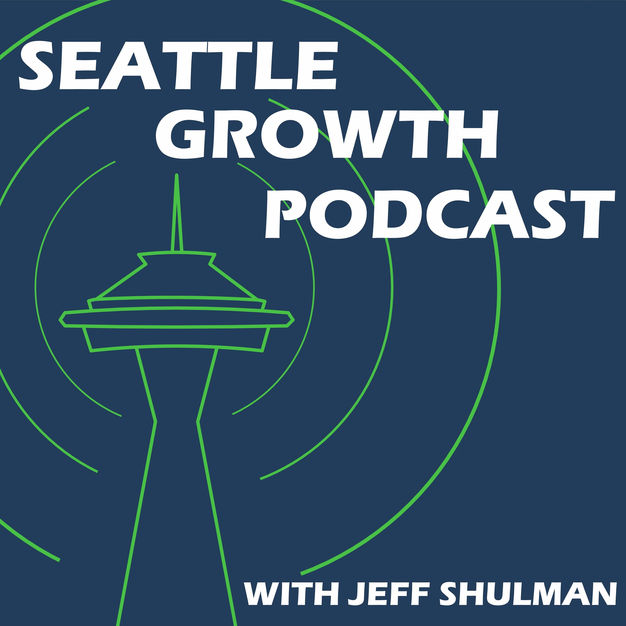 Seattle Growth Podcast
Seattle Growth Podcast
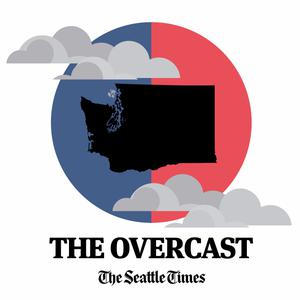 The Overcast
The Overcast
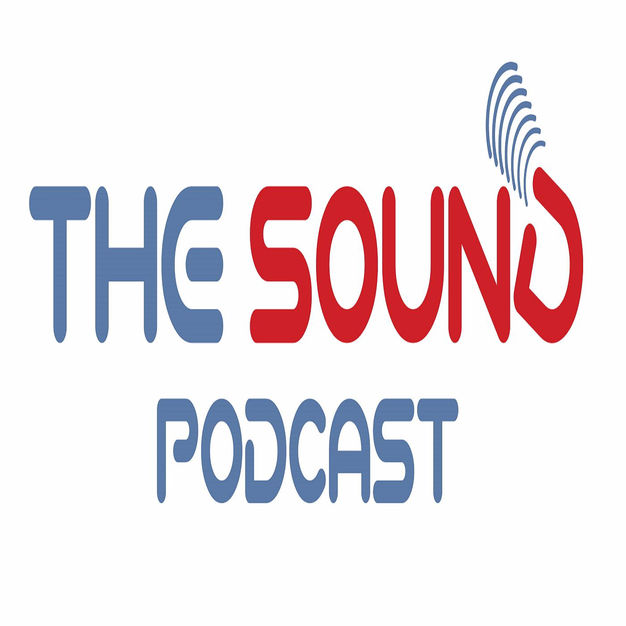 KING 5's The Sound Podcast
KING 5's The Sound Podcast
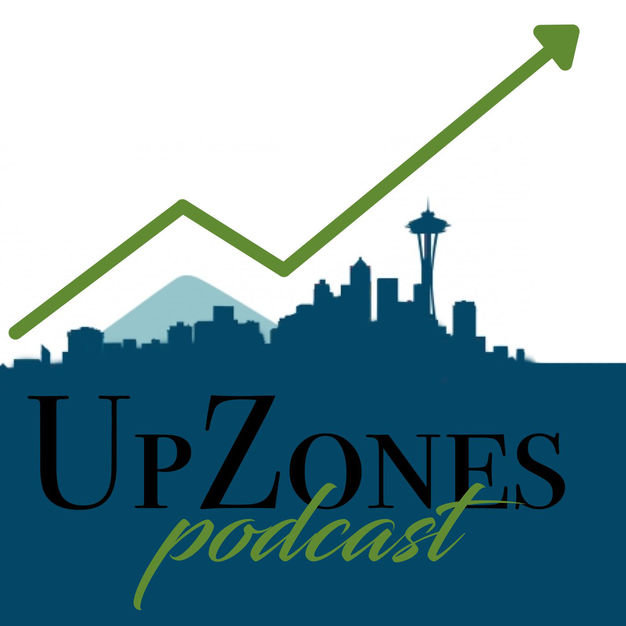 UpZones podcast
UpZones podcast
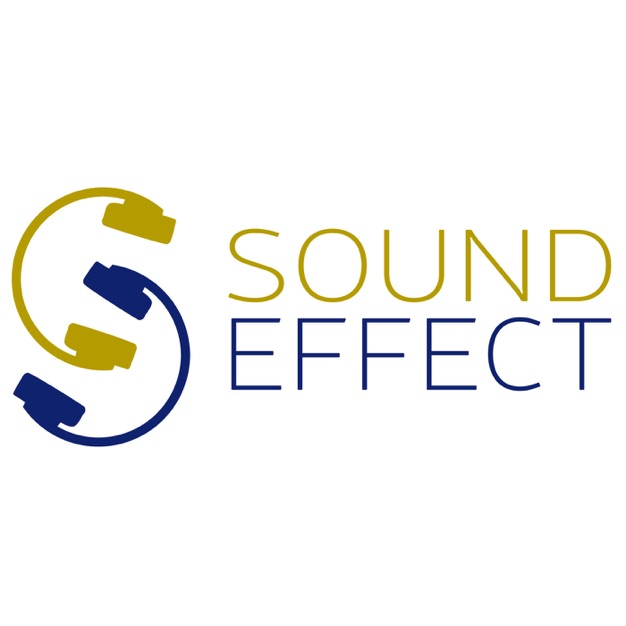 Sound Effect
Sound Effect